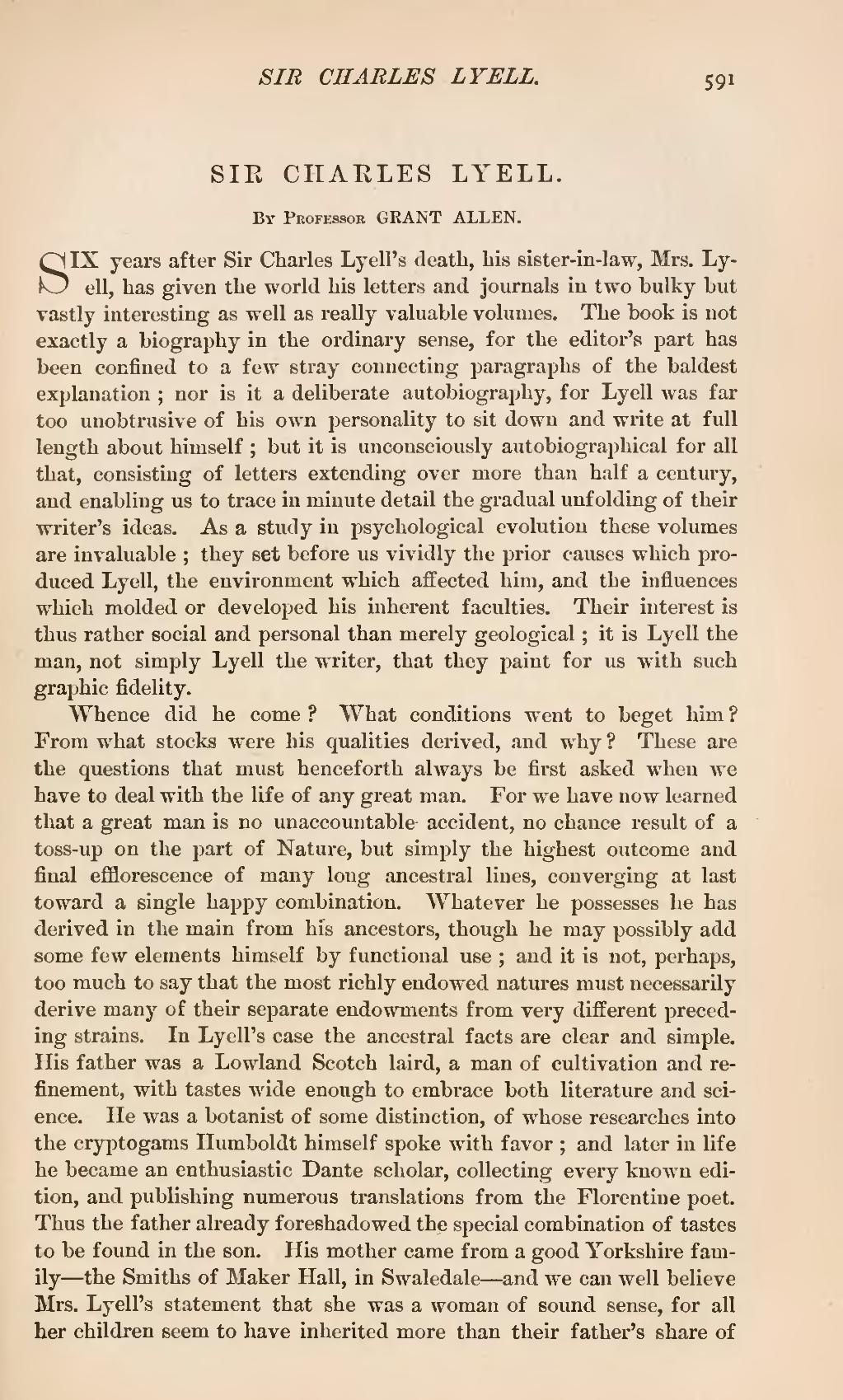| SIR CHARLES LYELL. |
By Professor GRANT ALLEN.
SIX years after Sir Charles Lyell's death, his sister-in-law, Mrs. Lyell, has given the world his letters and journals in two bulky but vastly interesting as well as really valuable volumes. The book is not exactly a biography in the ordinary sense, for the editor's part has been confined to a few stray connecting paragraphs of the baldest explanation; nor is it a deliberate autobiography, for Lyell was far too unobtrusive of his own personality to sit down and write at full length about himself; but it is unconsciously autobiographical for all that, consisting of letters extending over more than half a century, and enabling us to trace in minute detail the gradual unfolding of their writer's ideas. As a study in psychological evolution these volumes are invaluable; they set before us vividly the prior causes which produced Lyell, the environment which affected him, and the influences which molded or developed his inherent faculties. Their interest is thus rather social and personal than merely geological; it is Lyell the man, not simply Lyell the writer, that they paint for us with such graphic fidelity.
Whence did he come? What conditions went to beget him? From what stocks were his qualities derived, and why? These are the questions that must henceforth always be first asked when we have to deal with the life of any great man. For we have now learned that a great man is no unaccountable accident, no chance result of a toss-up on the part of Nature, but simply the highest outcome and final efflorescence of many long ancestral lines, converging at last toward a single happy combination. Whatever he possesses he has derived in the main from his ancestors, though he may possibly add some few elements himself by functional use; and it is not, perhaps, too much to say that the most richly endowed natures must necessarily derive many of their separate endowments from very different preceding strains. In Lyell's case the ancestral facts are clear and simple. His father was a Lowland Scotch laird, a man of cultivation and refinement, with tastes wide enough to embrace both literature and science. He was a botanist of some distinction, of whose researches into the cryptogams Humboldt himself spoke with favor; and later in life he became an enthusiastic Dante scholar, collecting every known edition, and publishing numerous translations from the Florentine poet. Thus the father already foreshadowed the special combination of tastes to be found in the son. His mother came from a good Yorkshire family—the Smiths of Maker Hall, in Swaledale—and we can well believe Mrs. Lyell's statement that she was a woman of sound sense, for all her children seem to have inherited more than their father's share of

